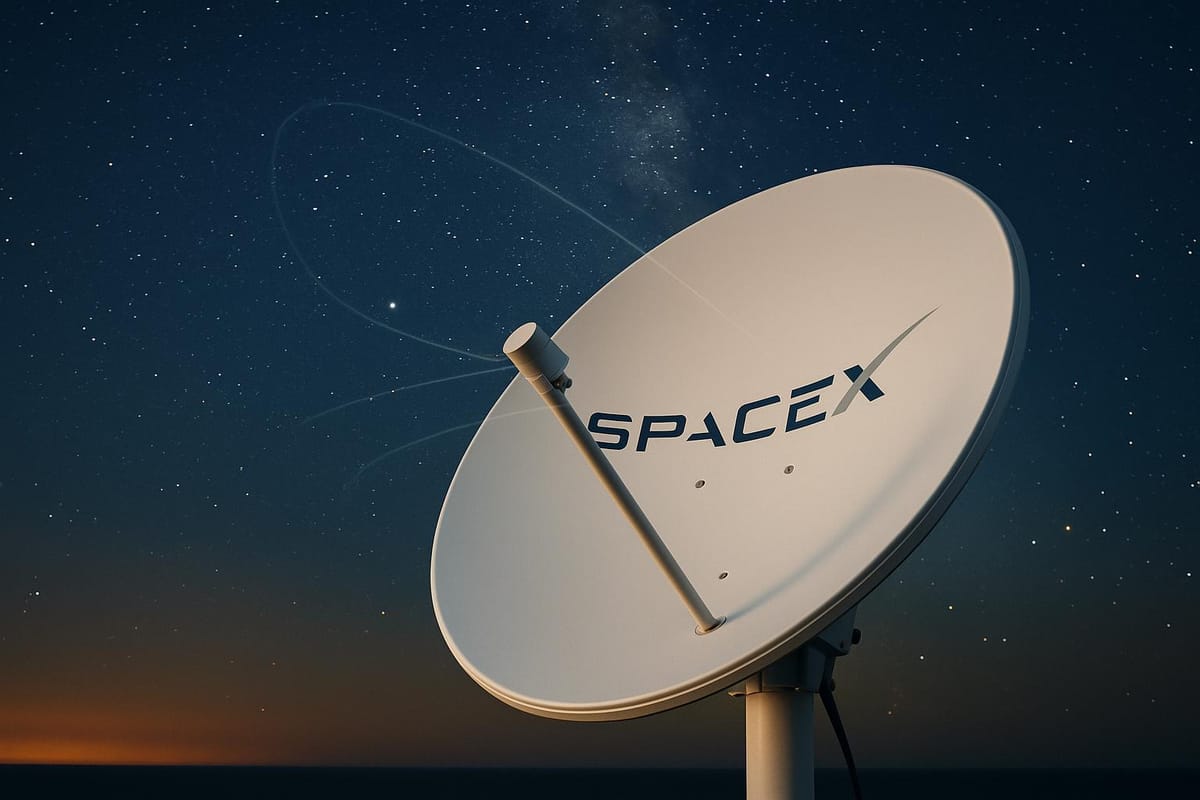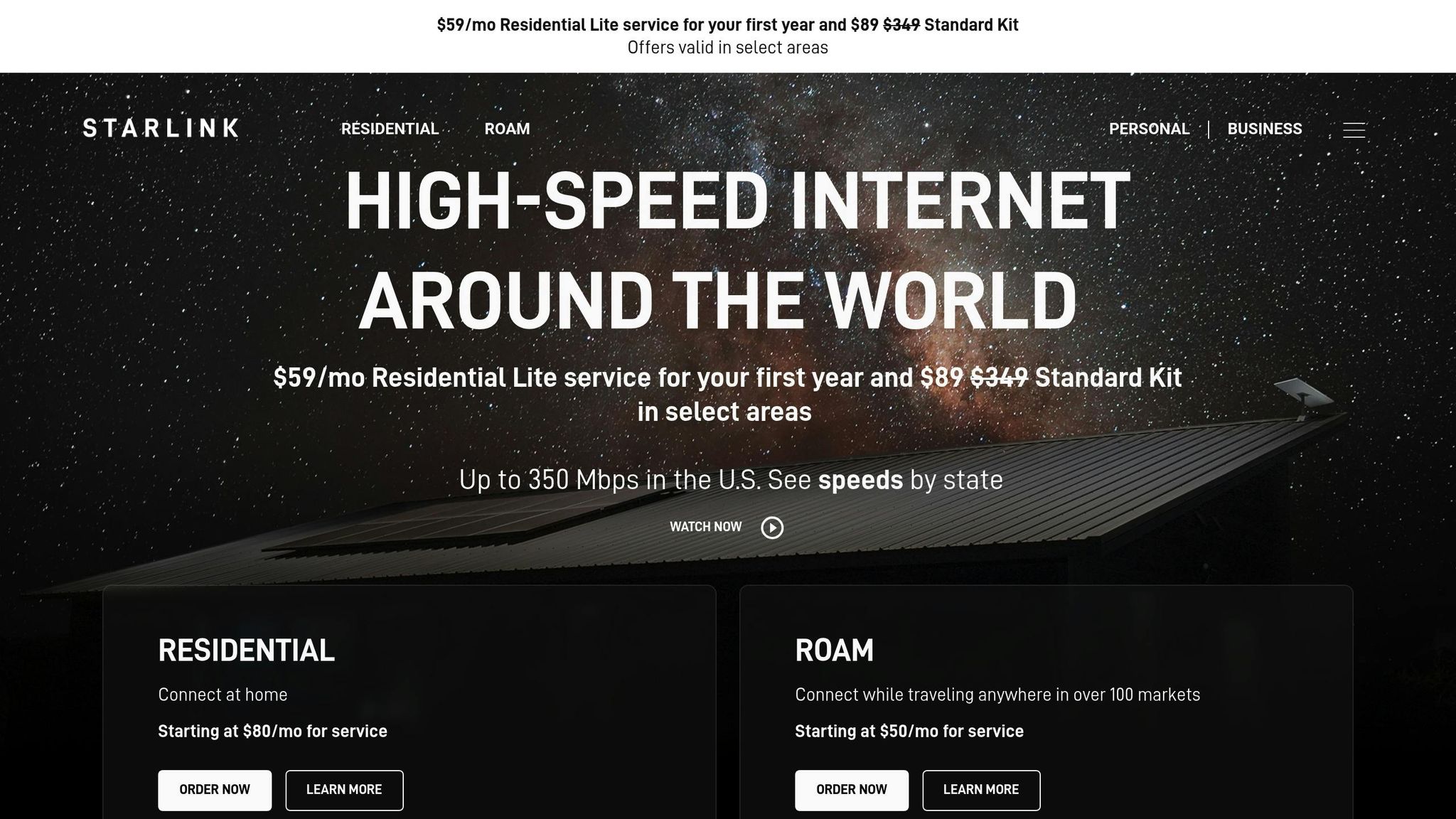SpaceX acquires spectrum licenses in $17 billion deal with EchoStar
SpaceX to buy EchoStar wireless spectrum for about $17B to expand Starlink direct-to-cell 5G services.

In a groundbreaking move to expand its Starlink satellite network, SpaceX has announced a $17 billion agreement to acquire wireless spectrum licenses from EchoStar. The deal, which Elon Musk’s company sees as a vital step toward enhancing its Starlink direct-to-cell services, is expected to significantly boost the company's ability to deliver 5G connectivity globally.
A Major Leap for Starlink

The purchase of these spectrum licenses will enable SpaceX to build and deploy advanced, laser-connected satellites. According to the company, these satellites will expand the capacity of its cellular network by "more than 100 times." Gwynne Shotwell, SpaceX’s president and COO, emphasized the impact of the deal: "With exclusive spectrum, SpaceX will develop next-generation Starlink Direct to Cell satellites, which will have a step change in performance and enable us to enhance coverage for customers wherever they are in the world."
The agreement also includes a partnership to allow EchoStar’s Boost Mobile subscribers access to Starlink’s direct-to-cell service. This collaboration aims to extend coverage into areas currently lacking mobile service.
Market Reactions and Industry Implications
The announcement caused a stir in the markets, with EchoStar’s shares surging 19% in early trading. Conversely, U.S. wireless carriers such as AT&T and T-Mobile saw their stocks decline by over 3%, while Verizon dropped by more than 2%. These market reactions underscore the potential disruption SpaceX’s expanded satellite capabilities could bring to the telecommunications industry.
This development comes amidst a surge in wireless data usage. In 2024, Americans consumed a record 132 trillion megabytes of mobile data, a 35% increase over the previous year, according to industry group CTIA.
The Role of Starship and Regulatory Challenges
Key to deploying the new, larger satellites is SpaceX's next-generation Starship rocket. Although still under development for over a decade, test launches of the Starship have reached increasing levels of complexity. The first operational Starlink missions utilizing Starship are anticipated early next year.
The deal also addresses lingering concerns from federal regulators. The Federal Communications Commission (FCC) had previously raised questions about EchoStar’s use of its mobile-satellite service spectrum, specifically regarding its commitment to deploying 5G within the United States. EchoStar expressed confidence that this transaction, along with its earlier $23 billion sale of spectrum licenses to AT&T, would resolve the FCC’s inquiries.
An FCC spokesperson commented on the significance of these agreements, stating that they "hold the potential to supercharge competition, extend innovative new services to millions of Americans, and boost U.S. leadership in next-gen connectivity."
Financial Terms and Future Outlook
As part of the transaction, SpaceX will pay up to $8.5 billion in cash and issue up to $8.5 billion in stock. Additionally, the company has agreed to cover approximately $2 billion in interest payments on EchoStar’s debt obligations through late 2027.
EchoStar, following the sale, will continue to operate its satellite television service Dish TV, streaming platform Sling, Hughes internet service, and its Boost Mobile brand.
SpaceX has been vocal about its frustrations with what it described as underutilized spectrum. In a letter to the FCC earlier this year, the company argued that EchoStar’s spectrum in the 2-gigahertz band remained "ripe for sharing among next-generation satellite systems" and had been "chronically underused."
By securing the spectrum through this deal, SpaceX will no longer need to rely solely on leased frequencies from mobile carriers like T-Mobile for its direct-to-cell services, further solidifying its position as a leader in the satellite connectivity sector.
A Growing Competitive Landscape
This acquisition comes as other industry titans also make significant moves. Verizon recently finalized a $20 billion deal to acquire Frontier Communications, and in 2021, the company spent $52 billion to acquire and clear key spectrum. These developments reflect the rapidly intensifying competition in next-generation connectivity solutions and the high stakes involved in shaping the future of global telecommunications.
The SpaceX-EchoStar deal, however, stands out as a pivotal moment, signaling a new era of satellite-powered cellular connectivity. With its ambitious plans and cutting-edge technology, SpaceX appears poised to transform the landscape of mobile communication.
Comments ()